DM168 HERITAGE
South Africa 2030: Voices from the future, somewhere over the rainbow
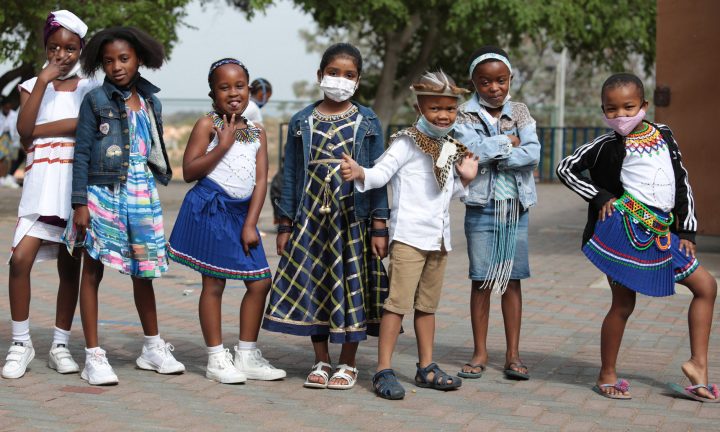
When we talk about heritage, we often look at our past. We explore the world our children will inherit in the years to come.
First published in the Daily Maverick 168 weekly newspaper.
DM168 spoke to a group of primary school children who will be coming of age in about 2030. After quizzing them on their personal hopes and dreams as well as their desires for South Africa, we consulted futurist thinkers and experts to help paint a picture of the possible status of South Africa by 2030 and how this generation could navigate that future.
In terms of generation labels, this group of children is at the younger end of Generation Z and the first demographic cohort of Generation Alpha (A). Their combined characteristics include being technologically savvy, influenced by social media as well as racial and ethnic diversity.
The year 2030 is also the “goal year” of the National Development Plan (NDP), which is aimed at eliminating poverty and reducing inequality. Experts agree the goals outlined in the NDP – such as housing, water, electricity and sanitation – will probably not be reached by 2030. Although Covid-19 has thrown a spanner in the works, progress had already been slow.
It was also unlikely that the inequality gap would shrink by 2030, said Professor André Roux, the former director of the Institute for Futures Research at the University of Stellenbosch Business School.
The gap would be most acute between middle-income earners and the unemployed.
In a more positive scenario, South Africa could see economic growth of 3%, although this might not translate into a reduced unemployment rate.
The majority of South Africa’s population is young, Roux points out. And when you have a young population, “that opens up the possibility of something called a demographic dividend”.
This means that our working-age population is bigger than the number of children and the elderly, which is a potential positive. But this is contingent on this population being appropriately skilled and able to find employment.
Social justice warriors
This generation is set to pick up the baton of activism and the fight for social justice.
Dion Chang, trends expert and founder of Flux Trends, says climate change will still be a hot-button issue – and the conversation will be driven by the youth.
Internationally, the likes of Greta Thunberg have risen as global champions for climate justice while, locally, young people such as 19-year-old Ayakha Melithafa have voiced their grievances to the United Nations Committee on the Rights of the Child for failing to address the climate crisis.
Movements such as the Global Climate Strike have also taken root.
Chang predicts a possible rise in climate litigation. In Australia, for example, teenagers took the federal government to court and won a landmark case that called on the government to protect future generations from the worsening climate crisis.
We will likely experience more pandemics. This is because of the link between climate change and health crises. Natural disasters often destroy animals’ habitats, causing them to come into closer contact with humans. This can cause cross-species transmission of infectious diseases. With global warming, long-dormant viruses frozen in ice could be released by thawing polar regions.
The social justice mindset – or “wokeness” as the older generation likes to say – will also be reflected in this generation’s consumer behaviour. Using social media as a tool, young people are already calling out brands for “colour-washing” – when brands purport to support a cause to appeal to a certain market but fail to tangibly implement those values. Brown-washing (using race issues) and rainbow- or pink-washing (LGBTIAQ+ issues) are just two examples of this.
Trend analyst and cultural strategist Nicola Cooper says awareness around issues of sustainability is increasingly prevalent in the fashion industry.
So-called fast fashion has come under scrutiny in recent years for its effect on the environment. The fashion industry has had several brands accused of green-washing, where companies have made misleading claims about their sustainability measures.
Cooper points out that the push towards sustainability in the industry is multifaceted. “It’s not just the manufacturing process that develops a sustainable business, there is the impact on society, job creation, equal opportunity, education, the environment and renewable fuels.”
Young people will continue to “call out” and even “cancel” brands that fail to uphold these values.
LGBTIAQ+ representation and a shrinking wage gap
LGBTIAQ+ rights are also deeply important to this generation. Dr Nyx Mclean, an academic and researcher specialising in gender and sexuality, hopes that by 2030 there will be actively enforced legislation to protect LGBTIAQ+ people from hate crimes. Better provision of healthcare for transgender people in South Africa is also crucial.
Nicky Falkof, associate professor of Media Studies at Wits University, said there could be an “explosion of media representation of queer, trans and non-binary people” as this more gender-curious generation comes of age.
For Mclean, conversations around gender and sexual identities are likely to continue to challenge mainstream ideas of gender and sexual norms, with the possible effect of a more inclusive society.
Falkof said the status of women should also improve. From a decrease in the wage gap to an increase in female influence “the higher up the pay scale we go”.
“Women’s power in commerce and industry will probably become ever more noticeable as more and more highly trained and skilled female professionals enter the workforce.” It is unlikely, however, that these benefits will trickle down to poorer women.
The push for decolonisation
Reflecting on South Africa’s race relations in 2030, Professor Sarah Nuttall, the director of the Wits Institute for Social and Economic Research (WiSER), says the country has already moved away from non-racialism towards anti-racism, which has been “productive”, as well as a shift from desegregation to decolonisation.
“The shift in the conversation is an indication that the conversation is black-African-led,” she says.
According to Nuttall, there is already a growth in black intellectual talent within universities, a trend that should continue over the next 10 years: “I’m seeing a whole new layer of young intellectuals taking ownership of universities, public debate, producing extraordinary work in the humanities.”
Sparked by the decolonial movements on university campuses such as #RhodesMustFall, Nuttall predicts a stronger push towards fighting racism in schools. Learners have taken up the mantle in recent years, calling out discriminatory codes of conduct at schools.
In 2016, activist Zulaikha Patel staged a protest at Pretoria Girls High School against their racist hair policy. The “You Silence We Amplify” movement that emerged on Instagram last year also saw students of colour sharing their experiences of racism in elite South African schools.
“White allyship” is an important issue Nuttall believes should be tackled in the coming years. “Even if one’s not engaging in one’s own identity struggles, how can one be an ally to people who are engaging around our historical dispossession and oppression?”
A quick glance at governance
Nuttall predicts a further breakdown at municipal level in terms of service delivery. “One of the big challenges for me is to build civil society resistance in trying to get better services for ordinary people.”
A report by Indlulamithi, a cross-sector initiative designed to stimulate conversation around social cohesion, maps out three scenarios for South Africa in 2030, one of which is a rise in service delivery protests because of a sense of injustice and exclusion.
Two general elections would have taken place by 2030. The Indlulamithi report also maps out a scenario in which the 2024 general election has the lowest voter turnout in South African history.
For Roux, the ANC will retain power in 2030, with a significantly reduced majority.
Jobs of the future
With the rise of the Fourth Industrial Revolution (4IR), the “jobs of the future” are going to be shaped by automation and artificial intelligence (AI).
Chang notes that new positions such as “head of remote” or “chief algorithmic officer” are already being advertised.
“Wherever automation and AI takes us is where those jobs will follow,” Chang told DM168. Addressing concerns that automation will displace existing jobs, Chang says manual blue-collar work would be affected, resulting in pushback from unions.
“If you don’t give those workers the upskill to compete with machines, then we’re going to be headed towards a really bad problem in South Africa by 2030,” he says.
Roux refers to the concept of “creative destruction”. As certain types of jobs become obsolete, new jobs will emerge to suit the changing landscape
With the advent of Covid-19, experts have pushed the narrative that children need to be taught digital literacy skills from preschool to equip them for the future of work. Workers entering the job market will need new skills such as learning agility, adaptability, empathy and transdisciplinary skills.
Challenges for the education sector
The schooling system will have to adapt to the changing pace of society, says Roux. Higher education, for example, will need to offer more relevant degree options and emphasis needs to be placed on vocational training.
The detrimental impact of Covid-19 on basic education will likely affect new university students for the next decade.
Alan Cliff, the dean of the Centre for Higher Education Development at the University of Cape Town, said the period may be lengthened if the pandemic continues.
He predicts that more students will qualify for university but lack of funding will be an ongoing problem. At UCT, for example, 40% of new undergraduate students are the first in their family to go to university.
“These students will need far more than being placed in academic programmes; they will need psychosocial support and mentoring”. Throughput (graduate) rates could also drop, he said.
Teaching and learning in higher education will continue to shift towards hybrid models, such as blended learning with some face-to-face interaction for subjects such as the dramatic arts and other practical subjects. The pandemic has accelerated this shift, says Cliff.
4IR and the changing economy
A technological advancement we could see by 2030 is the rise of so-called super apps.
Chang says the growing entrepreneurial spirit on the African continent could lead to the development of an app from which a user could access several services – for example, banking, ordering food and e-hailing services as well as going on to social media. This would be contingent on whether the continent (South Africa included) could overcome its connectivity issues.
Accelerated fintech developments because of Covid-19 also means we could find ourselves living in a majority cashless society.
“The pandemic has spawned a contactless economy,” says Chang. With South Africa’s rampant inequality set to persist, however, informal labourers such as car guards who make their money from cash tips could lose out.
In 2030, we will still have a dual economy, says Roux. One half will be characterised by technological advancements, while the other is the more informal “township economy”. He hopes to see the two operating in a symbiotic manner.
Self-employment and entrepreneurship will be more prevalent by 2030, say both Roux and Chang.
“We’re no longer in a world where big businesses will employ us automatically,” says Roux. Things such as small and micro businesses as well as the gig economy will gain traction.
Covid-19 has accelerated the shift from traditional workplace practices – and more changes are on the horizon.
Chang says the mantra of Gen Z has always been, “I want a lifestyle, not a job” – in other words, they have embraced decoupling the idea that work has to happen in a traditional setting such as an office.
“Work is on your computer and it’s what you do, not a brick-and-mortar place that you have to go to.”
The digital nomad lifestyle will be the norm as well as flexible working hours.
Roux says this generation will prefer working for companies that are “ethically sound”, ones that have sustainable business practices, are inclusive and diverse.
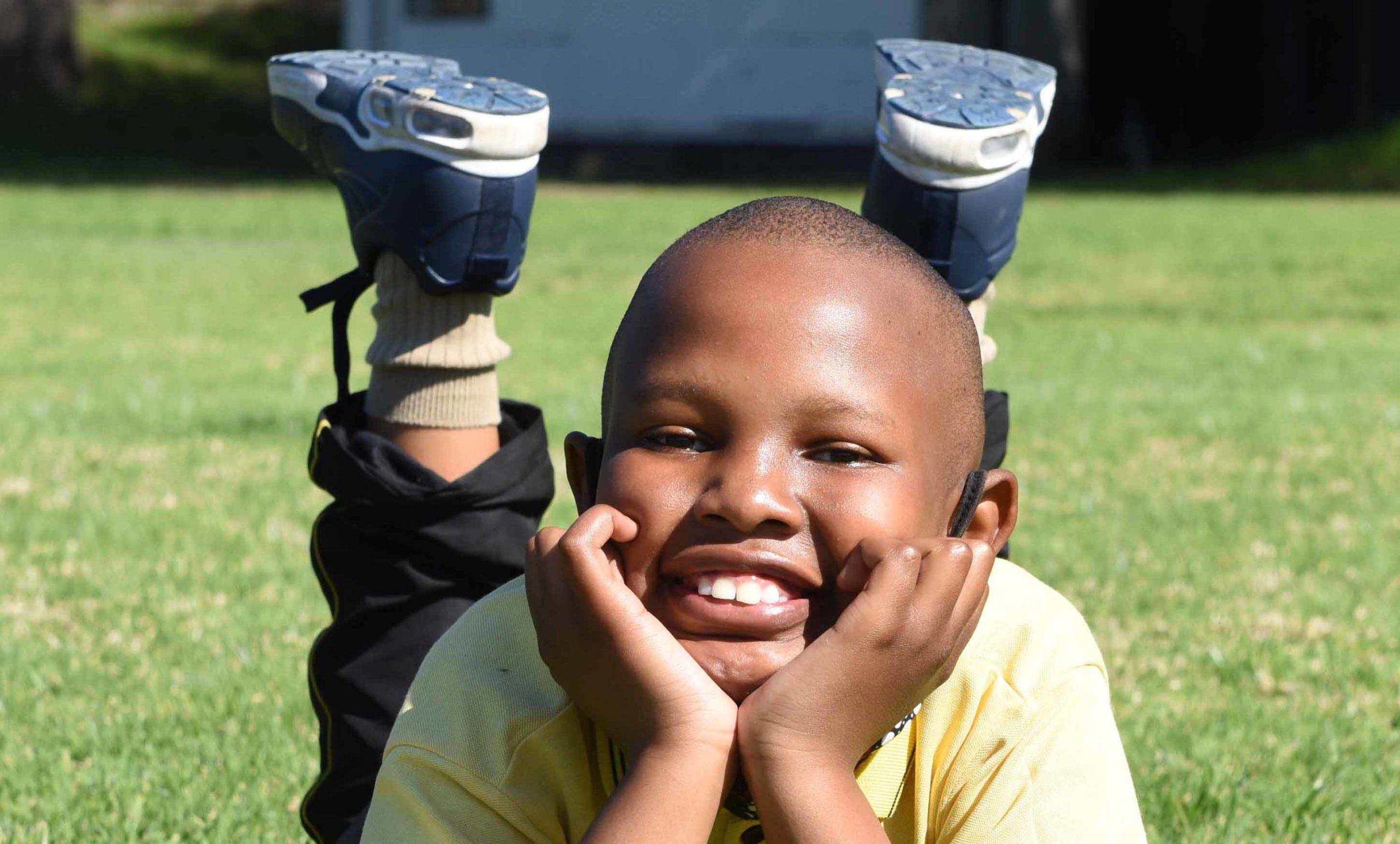
Xanti Mvimbi. (Photo: Nasief Manie)
Xanti Mvimbi (12), Grade 5, Cape Town
“I want to play cricket when I’m older so I can inspire people.
“I also want South Africa to be clean, protected and free, where there’s no racism or litter and everyone has their own opinions and no one judges you.
“I also want the country to have free schools for children who don’t have an education.”
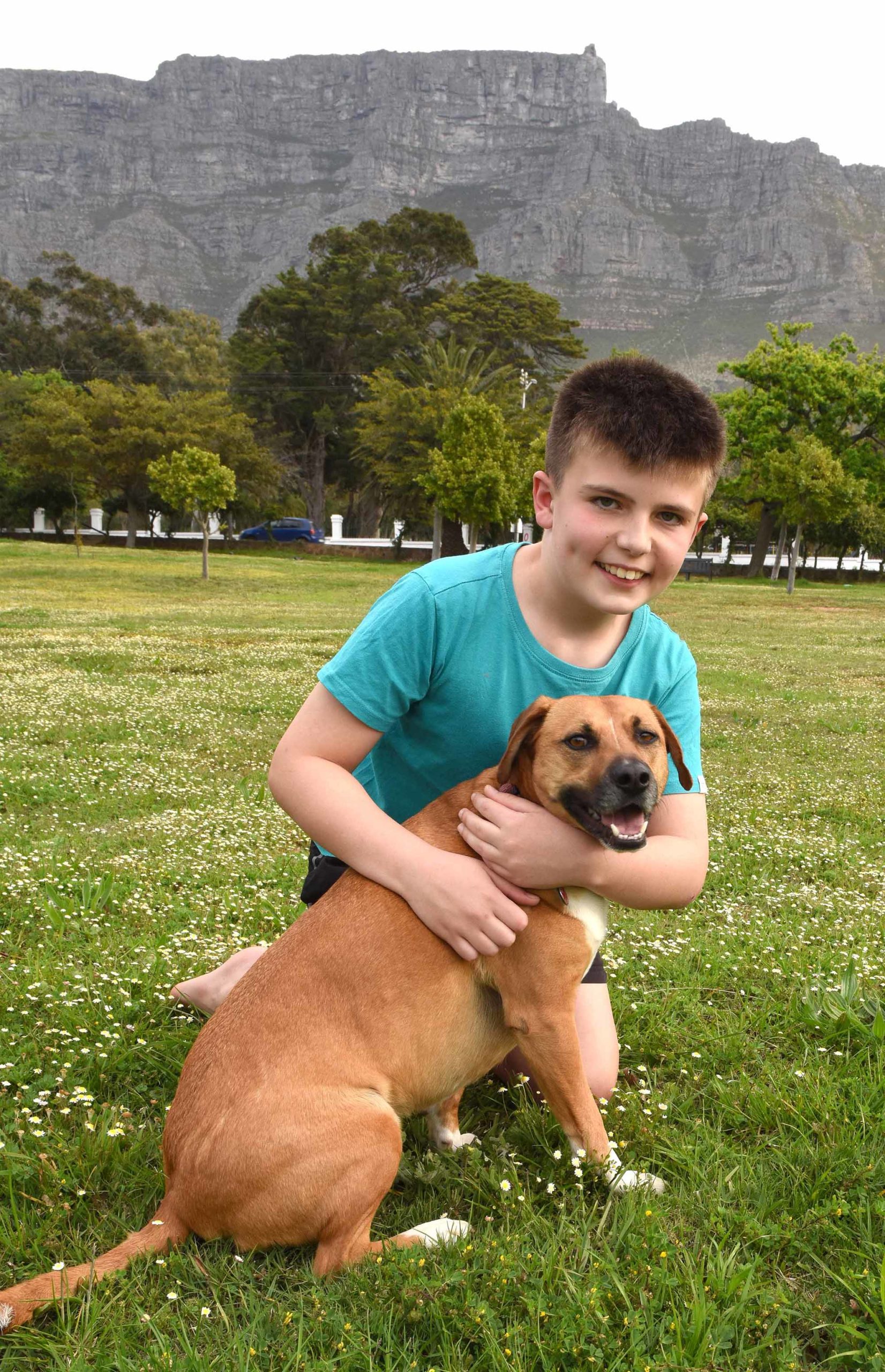
Daniel Ray with his dog Biscuit. (Photo: Nasief Manie)
Daniel Ray (11), Grade 5, Cape Town
“I don’t know what I want to be when I grow up, but I want to make South Africa a safer place to live in. I want South Africa to be a well-educated, safe and even happier country than it already is.”

Carla Simpson. (Photo: Helen McDonald)
Carla Simpson (11), Grade 5, Pretoria
“When I grow up, I want to be a teacher so that every child has an education and can later on follow their dreams as smart, independent adults.
“I want to teach maths and science because in South Africa many children miss out on these subjects. Maths and science can help us create jobs and develop the country.”
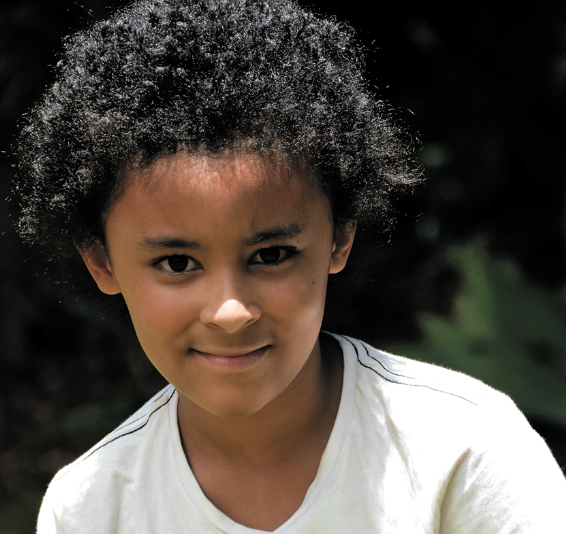
Ryan Simpson. (Photo: Helen McDonald)
Ryan Simpson (10), Grade 4, Pretoria
“When I finish school, I want to become an engineer and invent solar-panelled cars to help reduce climate change.
“I also want to design and build houses for those who don’t have proper accommodation and need a place to live in South Africa.”
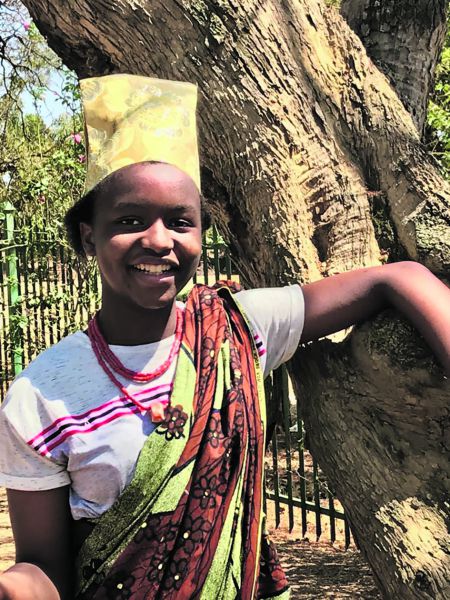
Blessing Akpele. (Photo: Helen McDonald)
Blessings Akpele, Grade 6, Pretoria
“I want to be a lawyer so that I can protect others. I dream of being an actress, but I also want to work towards ending pollution and wars.”
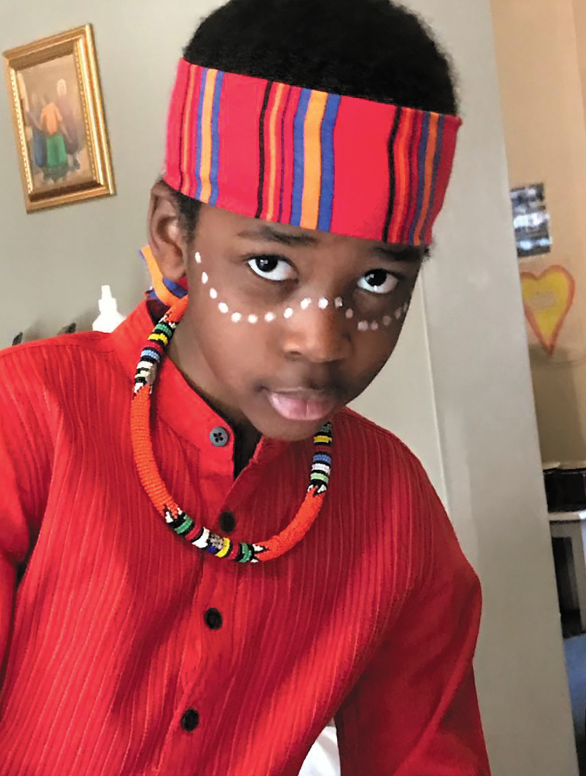
KaBelo Robertson. (Photo: Helen McDonald)
KaBelo Robertson (10), Grade 4, Pretoria
“When I grow up, I want to be a businessman and own my own technology company like Amazon or Logitech.
“I will create jobs for other people at my company. It’s going to be hard, but I hope there will be less racism in South Africa when I grow up. I would also like to end pollution.”
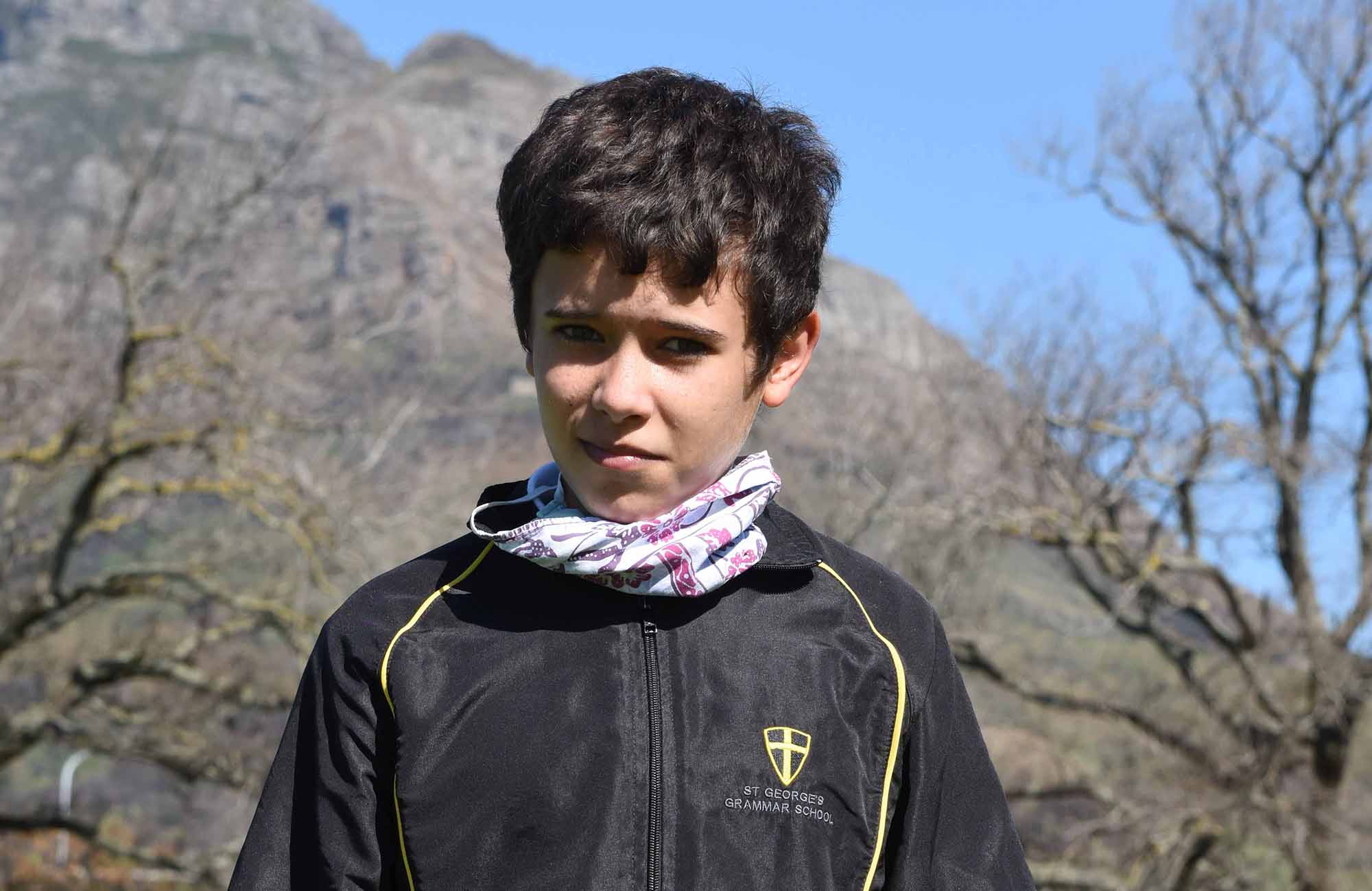
Alex Dean. (Photo: Nasief Manie)
Alex Dean (10), Grade 4, Cape Town
“When I’m older, I want to be an animator and to go to the moon with my dad. I want to live in a South Africa that has less junk and where there isn’t racism and poverty.”

Ayanda Bordiss. (Photo: Nasief Manie)
Ayanda Bordiss (12), Grade 6, Cape Town
“I’m not sure what I want to be when I grow up, but I want to do anything creative or be an engineer. I think engineering is cool because you can design things to help the environment and to help people.
“When I’m older, I want to live in a South Africa where I don’t need to shout for people to hear me. It takes so much effort to be heard, especially when you’re young.”
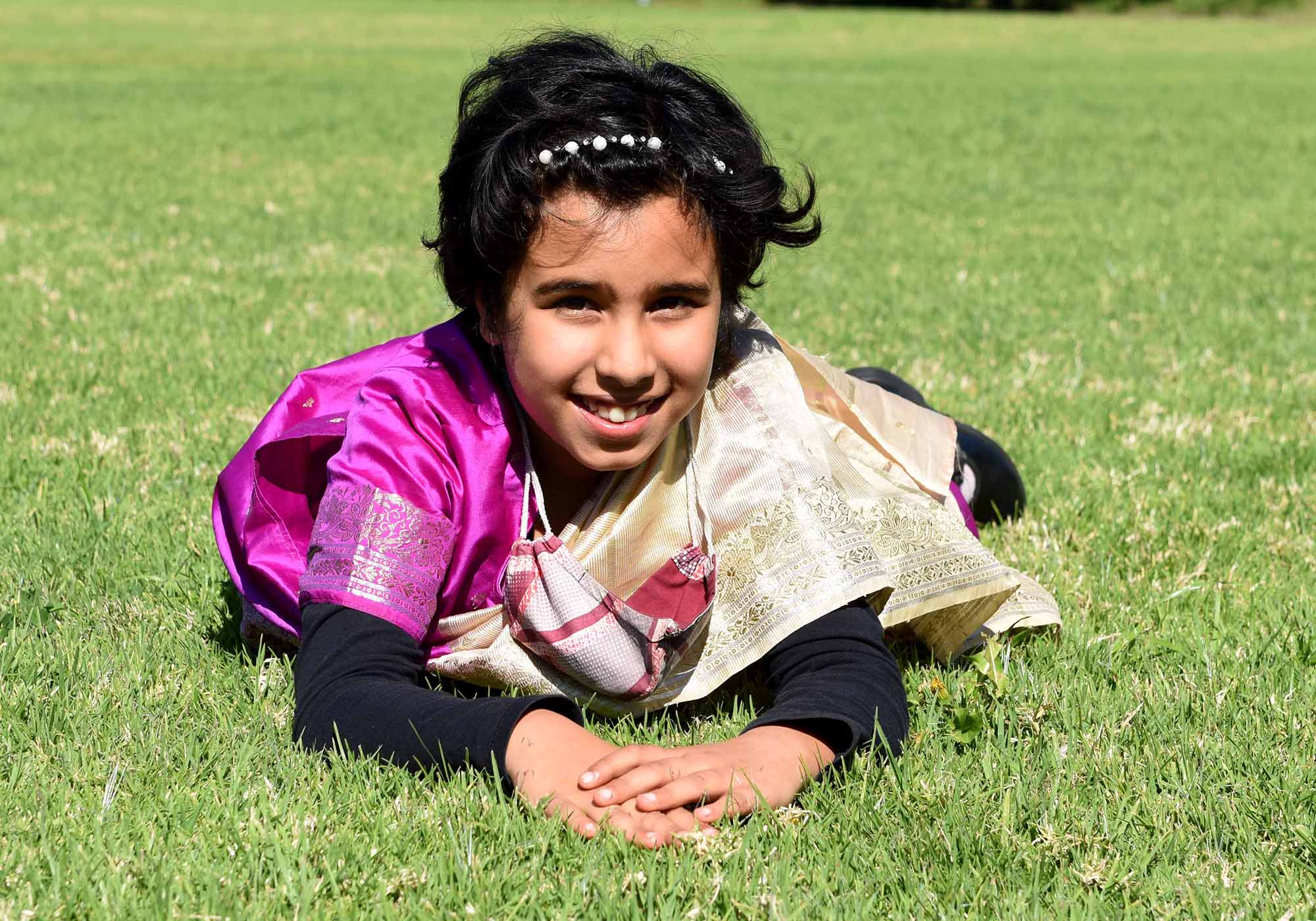
Zaira Pande-Kumar. (Photo: Nasief Manie)
Zaira Pande-Kumar (9), Grade 3, Cape Town
“When I’m older, I want to be an archaeologist and an author. I want to live in a country where you don’t have people who are too rich while others are poor.
“I want everything to be fair, where everyone has a home and the same privileges. I don’t like that there’s so many people on the streets. There should be houses that people are building.”
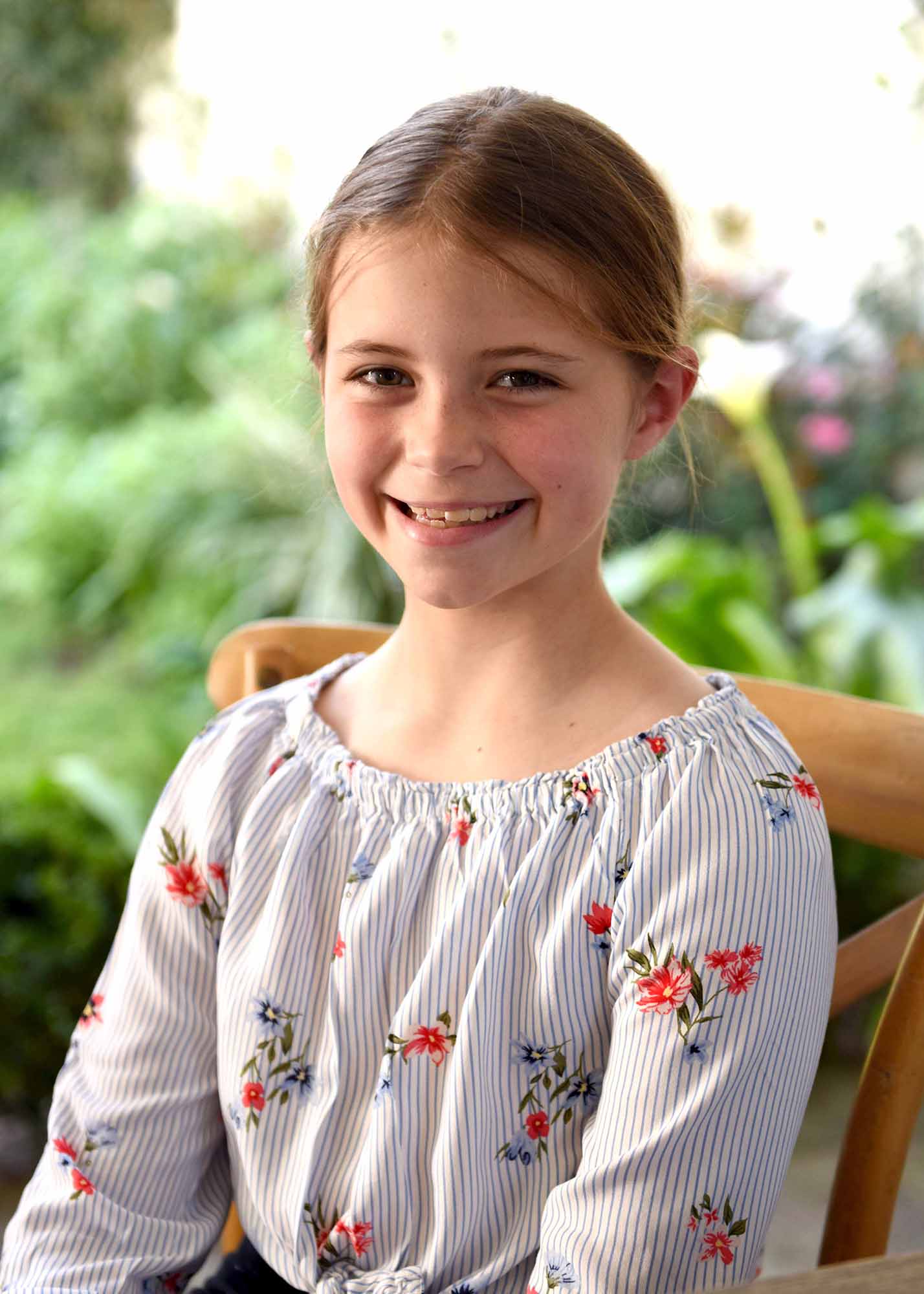
Isabella Beighton. (Photo: Nasief Manie)
Isabella Beighton (9), Grade 3, Cape Town
“When I grow up, I would like to be a scientist and to make special medicine for the Earth that you put in the water to make all the plastic go away. I hope to live in a country where we stand up to the bad guys who make people poor – like Zuma.” DM168
This story first appeared in our weekly Daily Maverick 168 newspaper which is available for R25 at Pick n Pay, Exclusive Books and airport bookstores. For your nearest stockist, please click here.

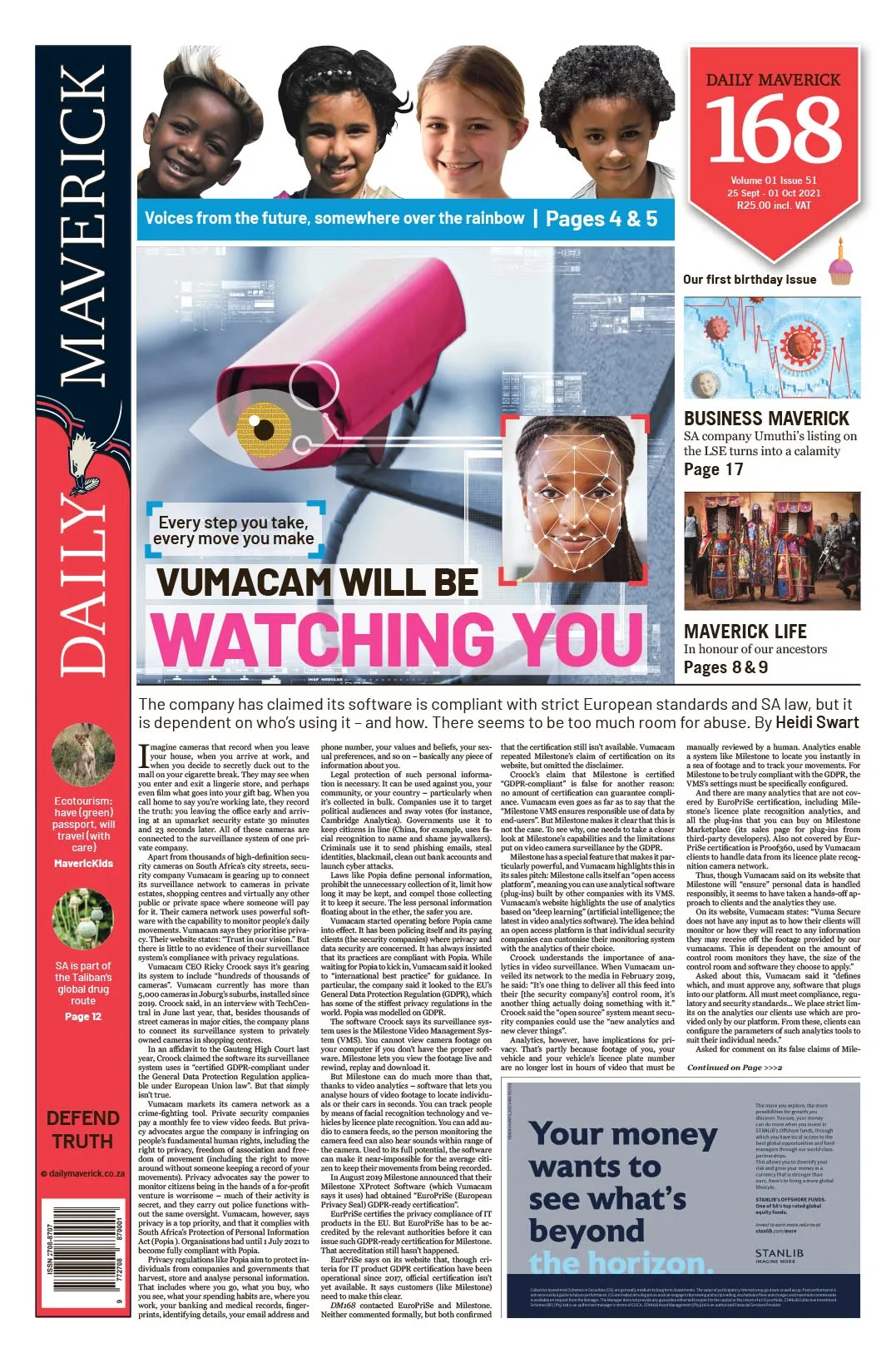





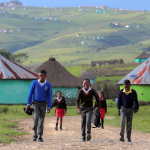












Comments - Please login in order to comment.